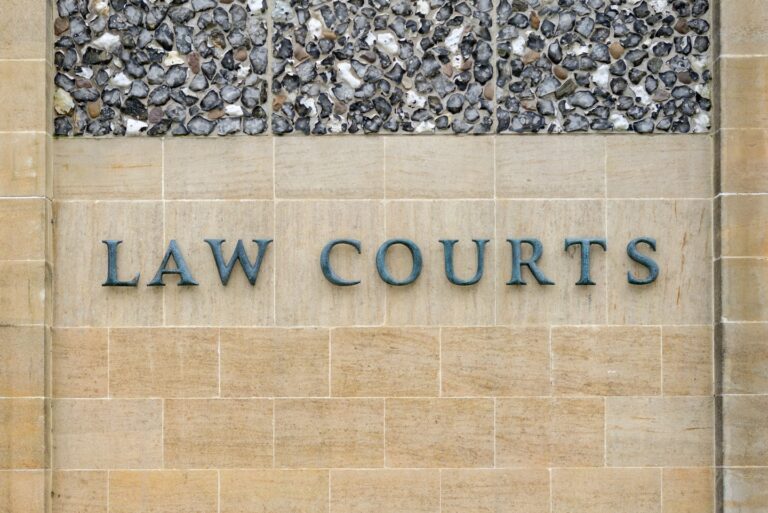
BBK Manifesto: Stop the delays in our justice system
Our justice system is creaking under the weight of the severe backlog of cases affecting criminal, civil and coroners’ courts. This poses a severe threat to justice and is leaving families unfairly waiting years for answers. We urge the next government to get a grip on these delays or face a loss of faith in the justice system.
Delays in criminal courts
There are significant delays in the justice system in England and Wales. At the end of December 2023 there were 370,731 outstanding cases at magistrates’ courts and 67,573 in crown courts. Whilst there has been some improvement in the median time from offence to completion, the figures remain above pre-pandemic levels.
President of the Law Society Nick Emmerson suggested delays are due to “our chronically underfunded and overwhelmed criminal justice system which cannot meet the demand”. Irrespective of the cause, the delays are devastating and leave victims in a state of limbo in their quest for justice. They also inevitably place increased pressures on victim support services.
Delays in the civil courts
Civil litigation often arises from criminal wrongdoing and therefore delays in the criminal court can have a knock-on effect for those eligible to seek compensation in the civil arena, as they must wait for criminal proceedings to conclude first.
However, there are also record court waiting times in the civil courts. The Civil Justice Statistics Quarterly for October to December 2023, published on 7 March 2024, demonstrate a worsening performance with delays in cases proceeding to trial reaching their highest level since 2009.
Delays in the coroners’ courts
The coroners’ courts are unfortunately underperforming too arguably causing more harm than good to bereaved families.
Inquests are meant to conclude within a six-month duration, however, between 2017 – 2022, the number of inquests lasting over two years in England and Wales quadrupled from 378 in 2017 to 1,760 in 2022. Whilst undoubtedly the covid-19 pandemic will have played a part in worsening the situation, it seems unlikely to be a mere coincidence that inquests have been stagnating steadily since the bite of the 2014 funding cuts implemented by central Government.
Inquest proceedings are fundamental to uncovering truths and upholding the rule of law. The timely instruction of legal representatives from an early stage helps grieving families to redress imbalances of power when facing large public bodies and/or corporate entities with more resources at their disposal. However, systemic delays in the coronial system are causing additional harm to families whilst thwarting the integrity of evidence. The current management of the delays to inquest proceedings is insufficient.
Families mourning the loss of a loved one serving in the Armed Forces are subjected to even lengthier investigations. Where a death arises from a military incident, a service inquiry is also held. A service inquiry is independent of a coroner’s inquest and its purpose is to ascertain facts and to issue recommendations to prevent recurrence. It is an internal investigation designed to maintain operational efficiency. However, the findings of a service inquiry are often used to inform the coroner’s inquest by clarifying more complex service issues.
Failures to conduct timely inquest proceedings and delays to Service Inquiries could well result in missed opportunities to prevent deaths. Urgent attention should now be given to the existing delays to ensure the proper administration of justice and to restore faith in the coronial system.
Conclusion
We see the harmful impact the ever-increasing delays in the courts are causing to our clients and potential clients across our areas of expertise.
Aside from the additional distress and heartache endured by those subjected to delayed court proceedings, it seems unlikely that delayed proceedings will uncover the same degree of reliable evidence as proceedings conducted in a timelier fashion.
Inevitably, questioning witnesses’ years after the event may result in witnesses who are vaguer in their recollection of events calling into question the credibility of their accounts. In addition, the retrieval of dependable evidence identified through cross-examination is less likely.
In essence, the existing delays in our courts are impeding the proper administration of justice. This will inevitably lead to a loss of faith in the justice system as justice delayed is ultimately justice denied.
A concern for the future is that existing backlogs of cases may inadvertently act as a deterrent for conducting more thorough investigations. This is more likely to occur where people are unrepresented in court proceedings as they will be less accustomed to navigating the legal system. Legal representation is therefore more important than ever.
This blog is part of our #ChampioningChange Campaign, specifically, Bolt Burdon Kemp LLP’s 2024 Manifesto for Injured People. In this campaign we call for politicians and candidates to prioritise injured people as they go into the 2024 General Election. This work is informed by our clients’ experiences and our partnerships with charities which support our clients and others like them. If you would like to read more about our full manifesto you can do so here.










